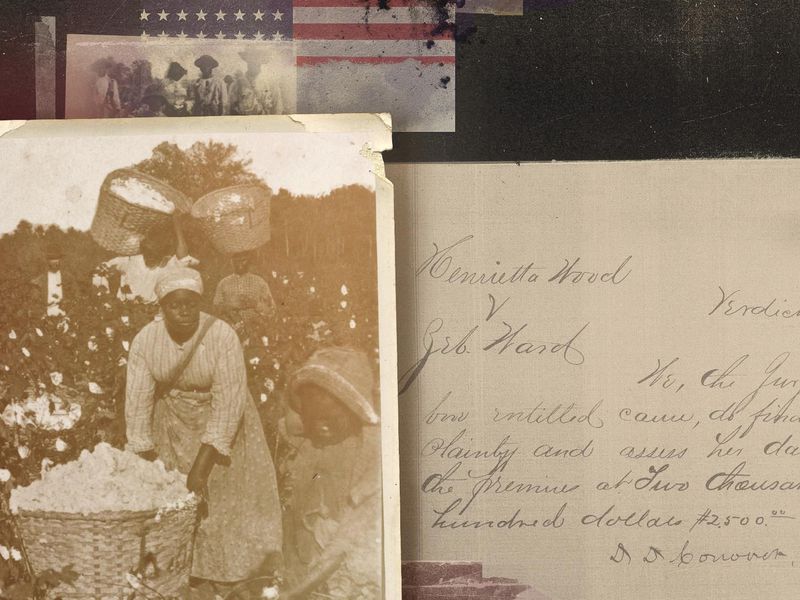
The subject of paying reparations for slavery has been raised periodically ever since the end of the Civil War. This was in the back of my mind when I recently read about a very unusual court case, Wood v. Ward, in which a former slave sued for reparations… and won.
The details are pretty complicated. Henrietta Wood was born a slave sometime between 1818 and 1820. She became the property of one William Cirode in New Orleans, with her ownership reverting to his wife Jane when William left for France and abandoned her in 1844. Jane moved to Louisville, Kentucky, then to Cincinnati, Ohio. But Ohio was a free state, slavery being prohibited by the Northwest Ordinance. So Jane gave Henrietta Wood her freedom, with the transaction duly registered in the courthouse.
When Jane Cirode died, her daughter and son-in-law, resenting Henrietta’s emancipation as depriving them as part of their inheritance, conspired to kidnap Henrietta and return her to slavery. (This was not unusual at the time; many free blacks were captured and returned to the South in the spirit of the Fugitive Slave Law of 1850.)
Henrietta was working in a Cincinnati boarding house when in April 1853, her employer (for a reward) took her for a carriage ride to Covington, Kentucky, where she was grabbed by a gang led by deputy sheriff Zebulon Ward.
Of course, Henrietta fought back. She filed suit when she was taken to Lexington to assert her freedom. Unfortunately, her official papers were destroyed in a fire, her kidnappers confiscated her personal copy, she wasn’t allowed to testify, and the case was dismissed. In Kentucky she was a slave.
Her kidnappers sold Henrietta in the Natchez, Mississippi slave market to Gerard Brandon, a wealthy plantation owner. She ended up working in one of his cotton fields, then in the plantation house. When the Civil War began and Union soldiers closed in on Natchez, Brandon moved Henrietta and about 300 other slaves 400 miles to Texas. Even when the war ended, she was kept enslaved; she didn’t regain her freedom until she returned with Brandon to Mississippi in 1866.
Henrietta continued to work for Brandon, this time for $10 per month. Eventually, she returned to Cincinnati and filed suit against the now-wealthy Zebulon Ward for $20,000, a substantial amount in those days. After setbacks (her lawyer was murdered in connection with an unrelated divorce case) and delays, a jury (ironically all white) awarded her $2500 on April 17, 1878.
The equivalent of almost $65,000 today, the settlement enabled her to live out the rest of her life in Chicago, where she died in 1912. Perhaps the greatest impact was her son Arthur was one of the first African-American graduates from what is now Northwestern University’s School of Law.
As for the rest of the country, the verdict was national news at the time, but then the country moved on. Even then, there wasn’t much interest in reparations for former slaves.

Taken from “In 1870, Henrietta Wood Sued for Reparations—and Won” by W. Caleb McDaniel (https://www.smithsonianmag.com/history/henrietta-wood-sued-reparations-won-180972845/). The photo came from that site. A print version is in the September 2019 issue of Smithsonian magazine. Mr. McDaniel is the author of Sweet Taste of Liberty: A True Story of Slavery and Restitution in America about Henrietta Wood.
